Our Planet’s Landmarks Series #41
Old City of Jerusalem Israel
Nowhere else in the world have I seen anything like the Old City of Jerusalem. This 0.9 square kilometre walled area is home to key religious sites of Jews, Muslims, and Christians. The Western Wall (or the Wailing Wall) is the most sacred for the Jews. Dome of the Rock and Al-Aqsa mosque is one of the top five religious sites of Islam. And, the tomb of Jesus in the Church of the Holy Sepulchre is an important pilgrimage for Christians. For centuries, these different ideologies have cohabited peacefully!
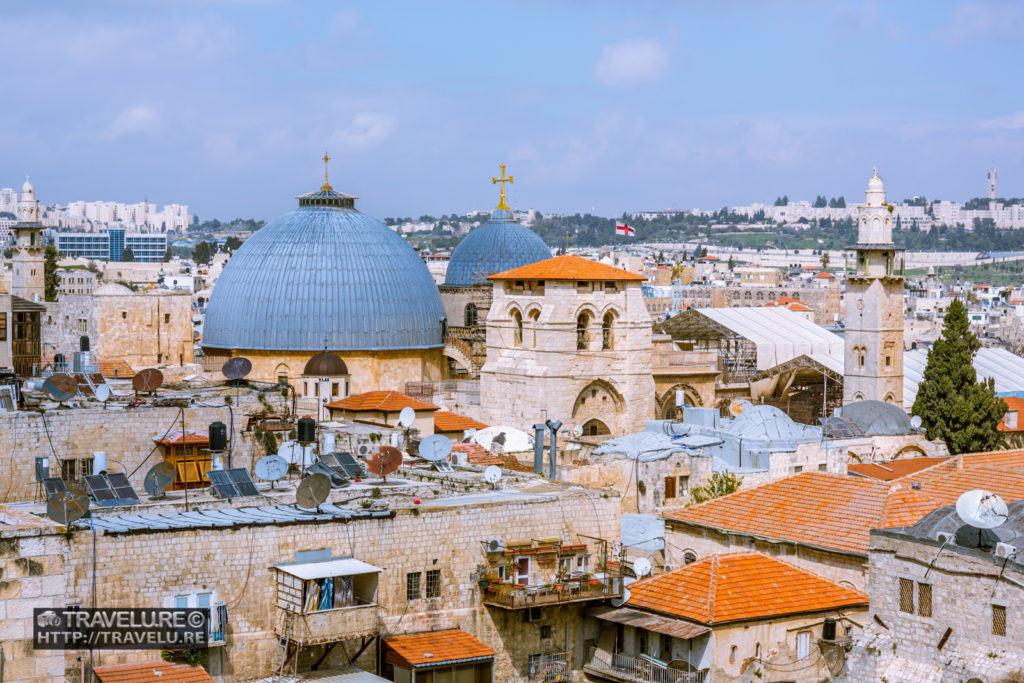
Lay of the Land
The Old City of Jerusalem is divided into four uneven quarters – Christian Quarter to the Northwest, Muslim, in the Northeast, Jewish Quarter in the Southeast, and the Armenian, in the Southwest. There is a fifth area that cuts into the Muslim and the Jewish Quarters – The Temple Mount. The modern city of Jerusalem has grown all around it.
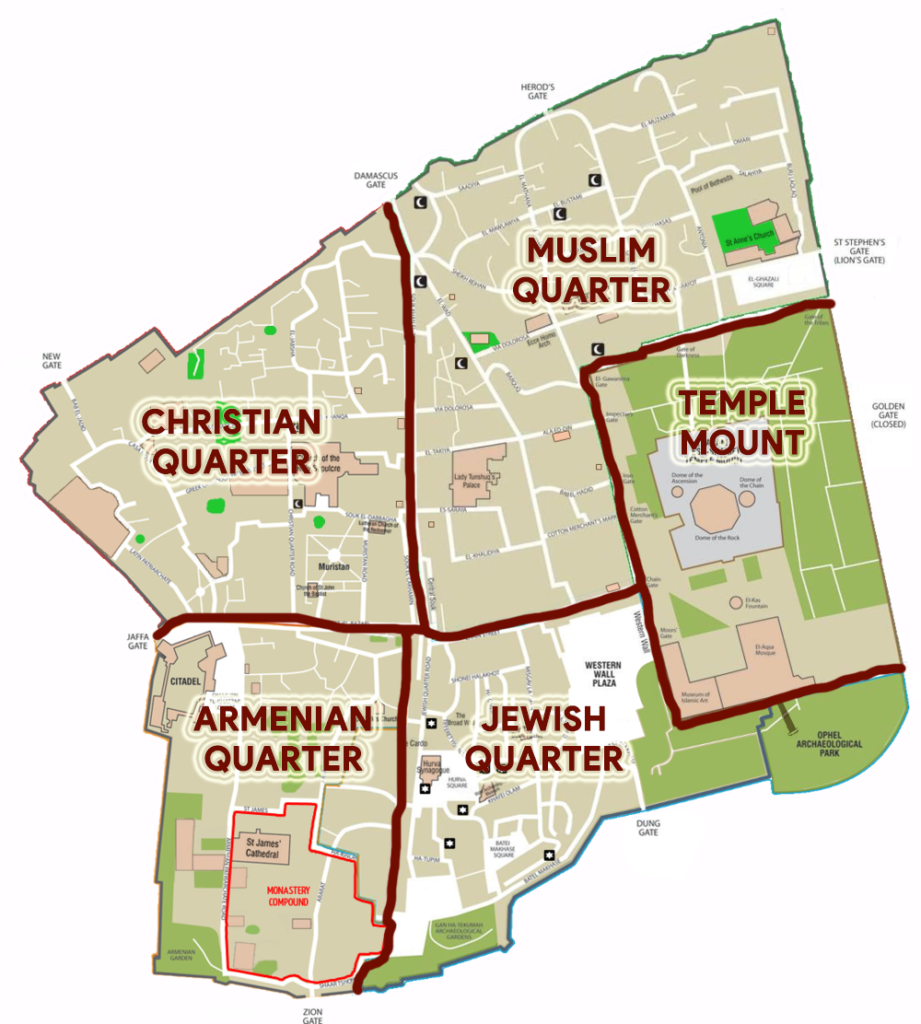
Eight gates lead you in. Damascus, Herod’s, Lion’s, Golden, Dung, Zion, Jaffa, and the New Gate. These gates came about in the 16th century CE during the rule of Turkish Sultan Suleiman the Magnificent. Golden Gate, also known as the Gate of Mercy or the Eastern Gate, has remained blocked for centuries. It awaits a miraculous opening when the Messiah comes and the dead resurrected.
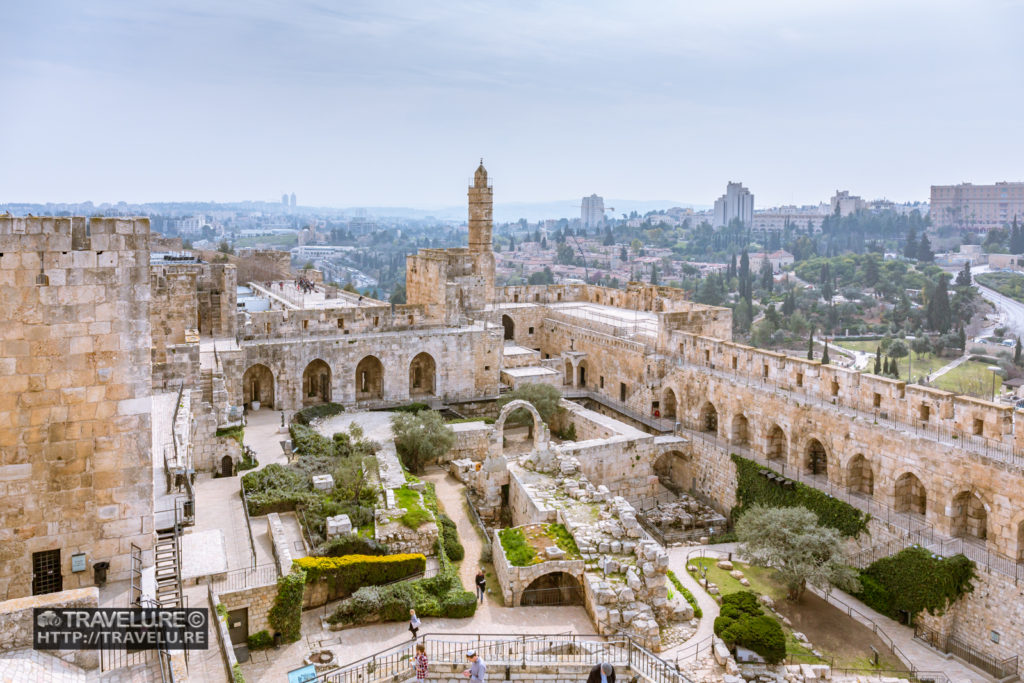
Walled City
Jaffa Gate led me to the Tower of David complex. It is a layered cake of history. Aggressors and elements, both ravaged the tower. Rulers of different eras repaired and restored it. A good guide will normally share with you the layers of history over the millennia this tower stands for.
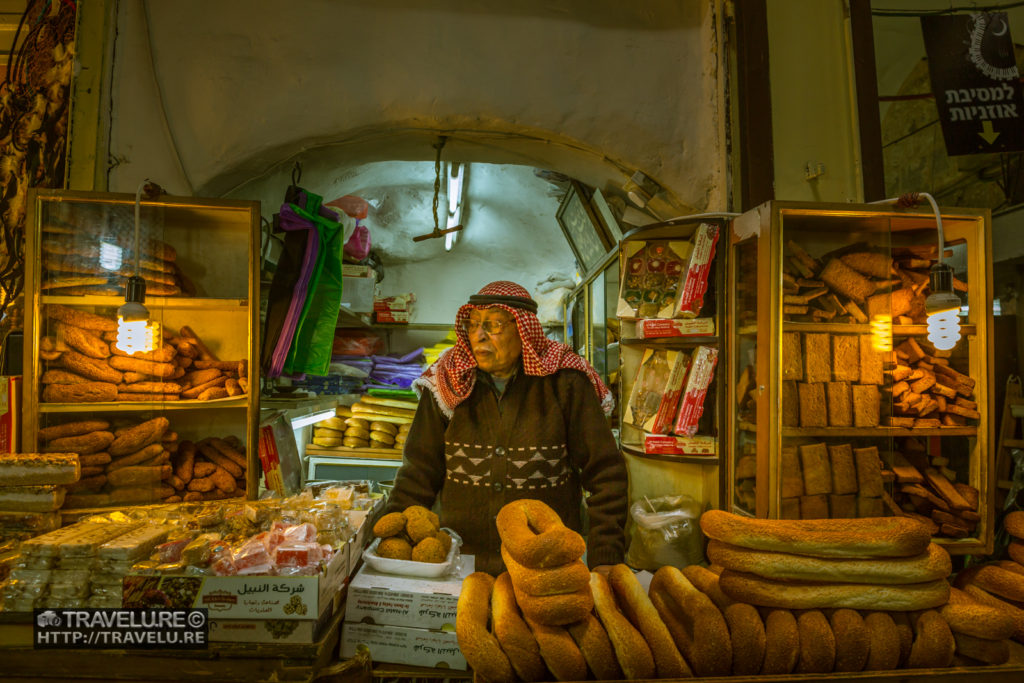
The walled city is in a time warp. Especially the Muslim Quarter. The narrow lanes lined with petty trade and souvenirs. Manned by folks as old as the place. Bustle and buzz of a beehive. Canopied shop fronts forcing dim bulbs to light up a bright day. And I was a character in French Orientalist Charles Theodore Frere’s ‘The Souk’.
I found Jesus even in the Muslim Quarter. No, not him, but his footsteps. Jesus carried the cross for his crucifixion through the Via Dolorosa or path of suffering. You find seven of its fourteen stations in the Muslim Quarter!
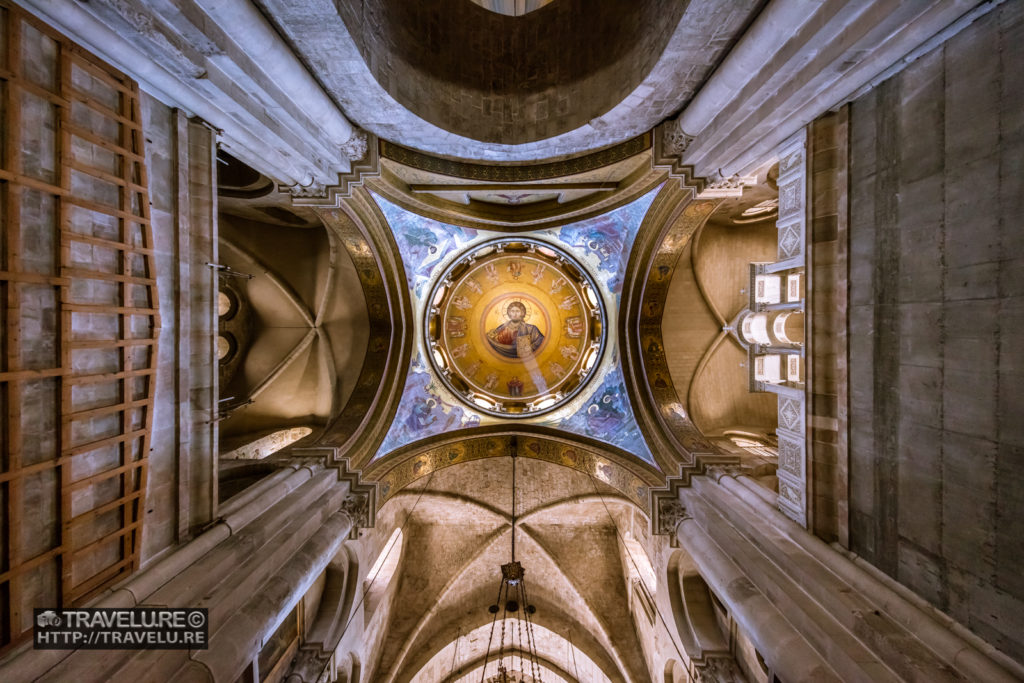
Spotting the eighth station of Via Dolorosa, I realised I had crossed over to the Christian Quarter. Soon after I went past the ninth station and found myself at the entrance of the Church of the Holy Sepulchre.
Omar and Jesus
Opposite the Holy Sepulchre is a mosque – the Mosque of Omar. Caliph Omar was asked to pray in the Holy Sepulchre, but he refused. He didn’t want Muslims to usurp it as their own sacred site.
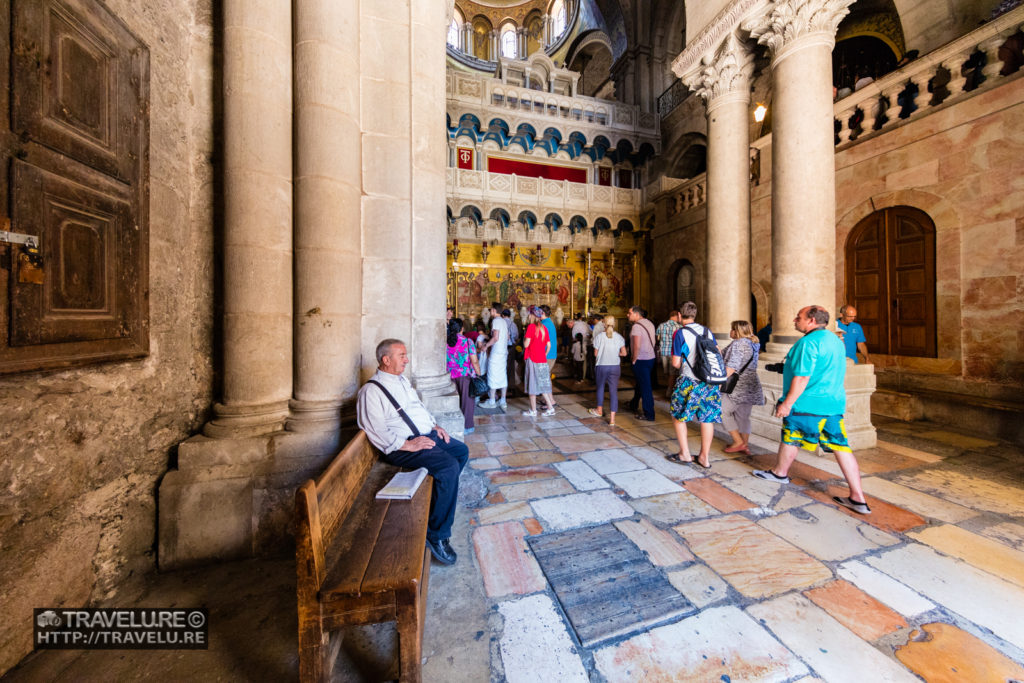
Omar had signed a protection guarantee (Covenant of Omar) for Christians to pray without fear in the Holy Sepulchre. The Caliph then went a step ahead. He entrusted the key of the Holy Sepulchre to his governor, an ancestor of Nusseibeh family. Even today, this family holds the key. The current key holder greets and welcomes visitors to the Holy Sepulchre. The mosque thus was a dedication to his sense of fairness.
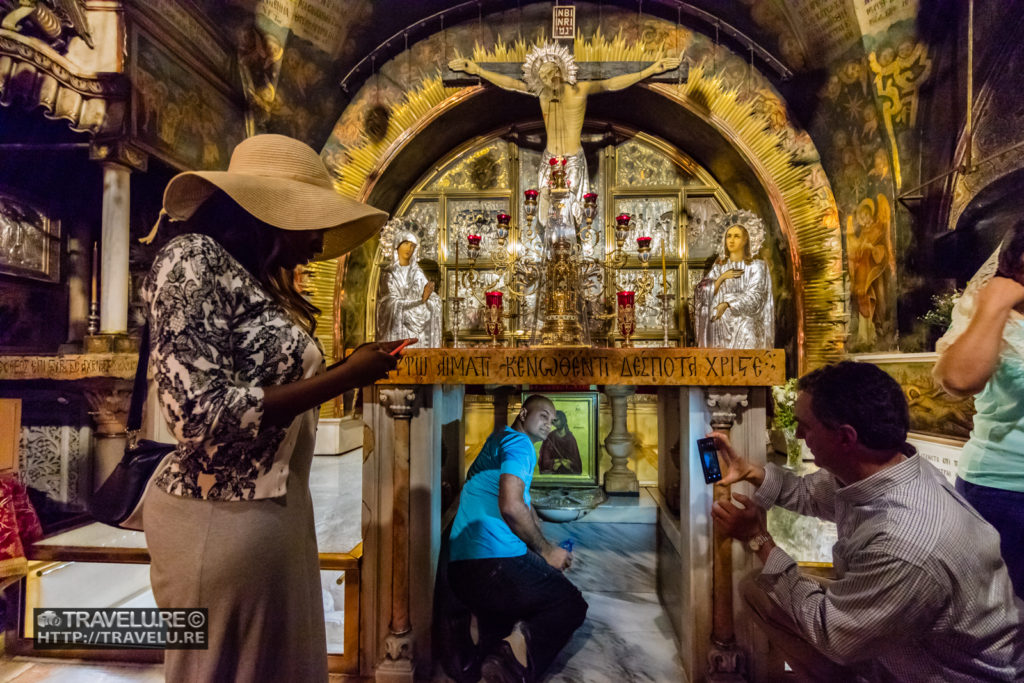
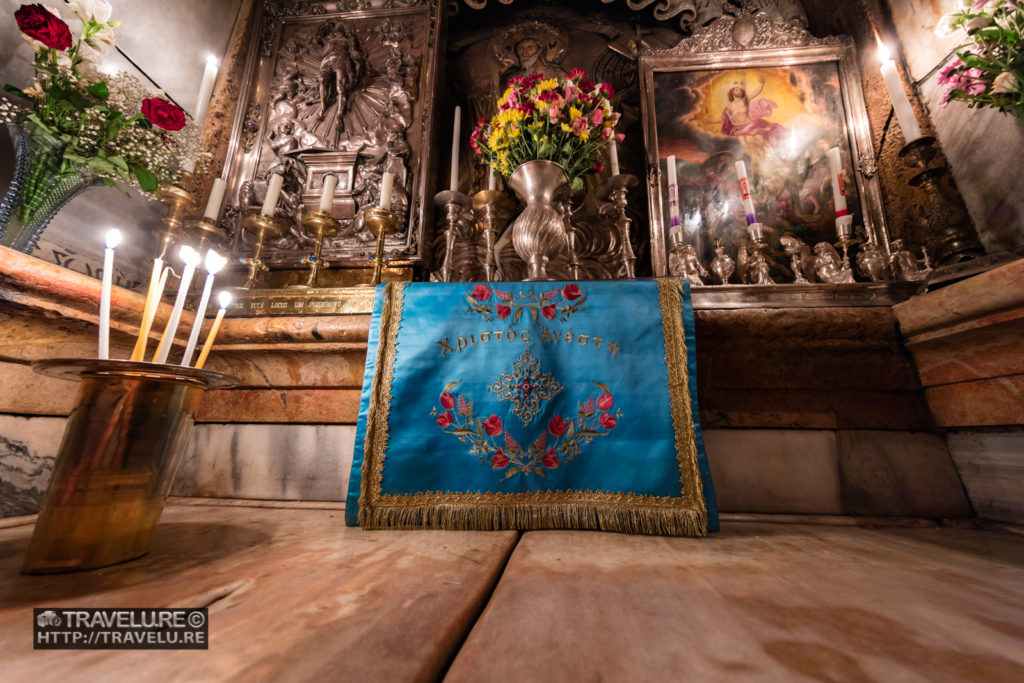
The Church has the remaining five stations of the Via Dolorosa. The spot where Jesus was crucified, and his Burial Place, are two important stations here.
Temple or Wall
Adjoining the Jewish and Muslim Quarter is the Western Wall along the Temple Mount. It is the most hallowed place for Jews. Every Jew wants to come and offer prayers here at least once. The wall in its entirety was longer. Today, what remains exposed is a small segment. An open plaza meant for prayers faces it.
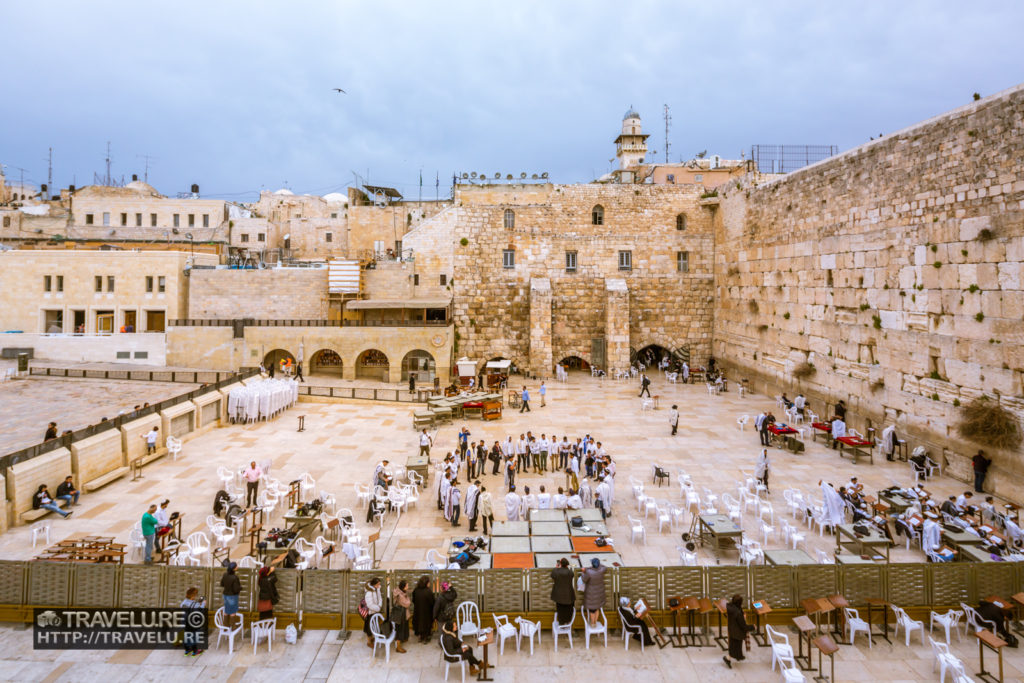
When built, it was a retaining wall for Temple Mount – the site of the original temple. Today, the Dome of the Rock and Al-Aqsa Mosque occupies the Temple Mount. Jews are restricted from accessing the Temple Mount. So, they pray at the Western Wall, though their holiest site lies behind on Temple Mount. The exposed portion is 19 metres high, with another 13 metres of it lying underground!
Some Jewish scholars rule that the plaza in its front has the status of a synagogue. Finding many Jews crying and grieving here, amazed me. I later learnt Jews must lament here seeing the desolate site of their temple.
Dome of the Rock
The Dome of the Rock is the most recognisable symbol of Jerusalem because of its golden dome. An octagonal structure with 11-metre high walls, an iconic wooden dome with gold cladding caps it. In 1993, King Hussein of Jordan funded it with $8.2 Million by selling one of his houses in London. It brought the necessary 80 kilograms of gold for the dome.
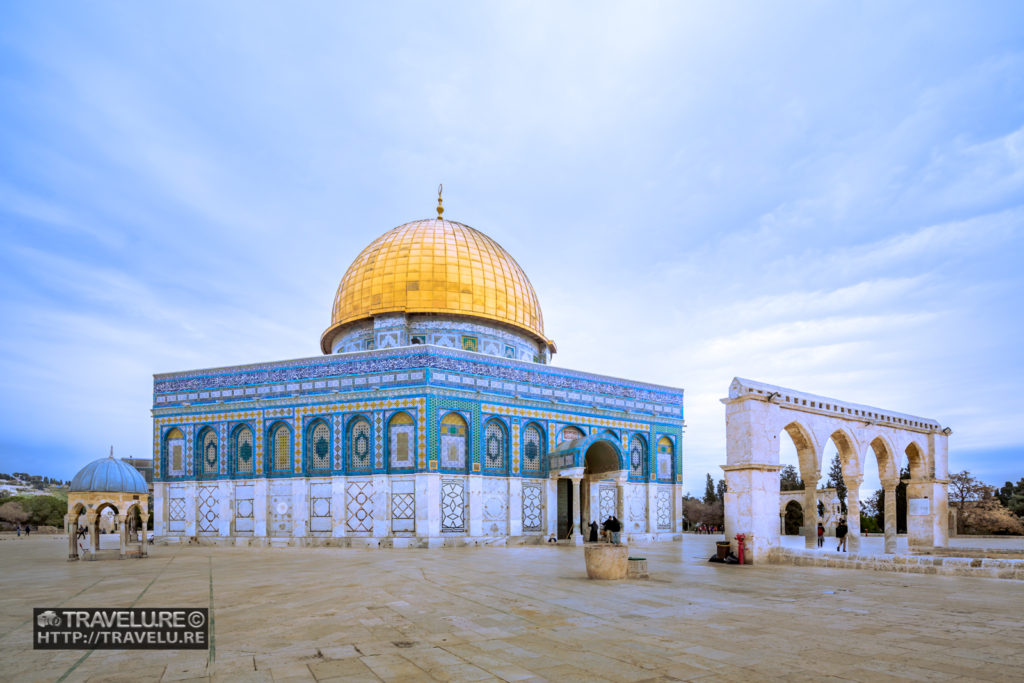
Today, there is a debate about the real purpose of this structure. The near-identical size of the domes of the Holy Sepulchre and the Dome of the Rock suggest it was a way Muslims proclaimed the superiority of their faith over Christians. Regardless, Jews venerate it as it was where Abraham prepared to sacrifice his son Isaac. For Muslims, the sacred rock inside the shrine marks the spot of Mohammad’s ascent to heaven.
Blue tiles with Arabic inscriptions embellish the exterior of this icon. Being a non-Muslim, I was not allowed inside. Those who had been inside shared that exquisite mosaic decorates its interiors.
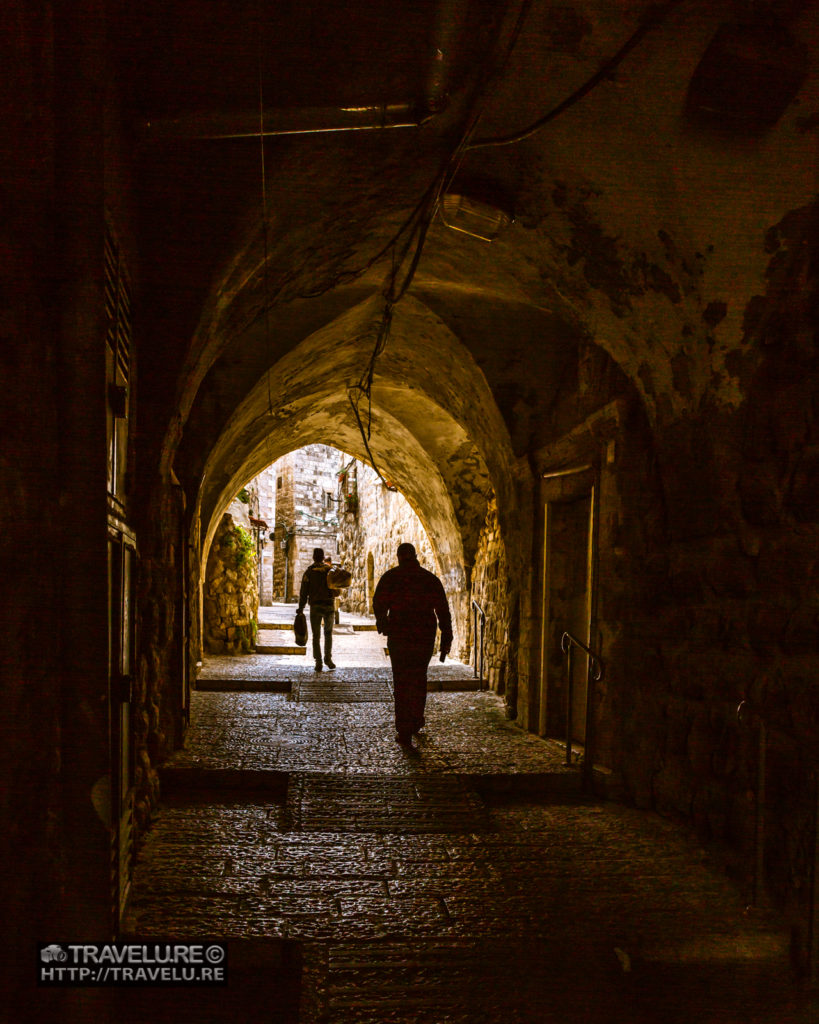
A potpourri or a landmark
The old city of Jerusalem is a veritable mish-mash of cultures, religions, and ethnicity. This unique microcosm is a peep into the history of the region over millennia. To acknowledge its importance, UNESCO added it to the World Heritage Site List in 1981. Its unique character makes it a perfect planet’s landmark.

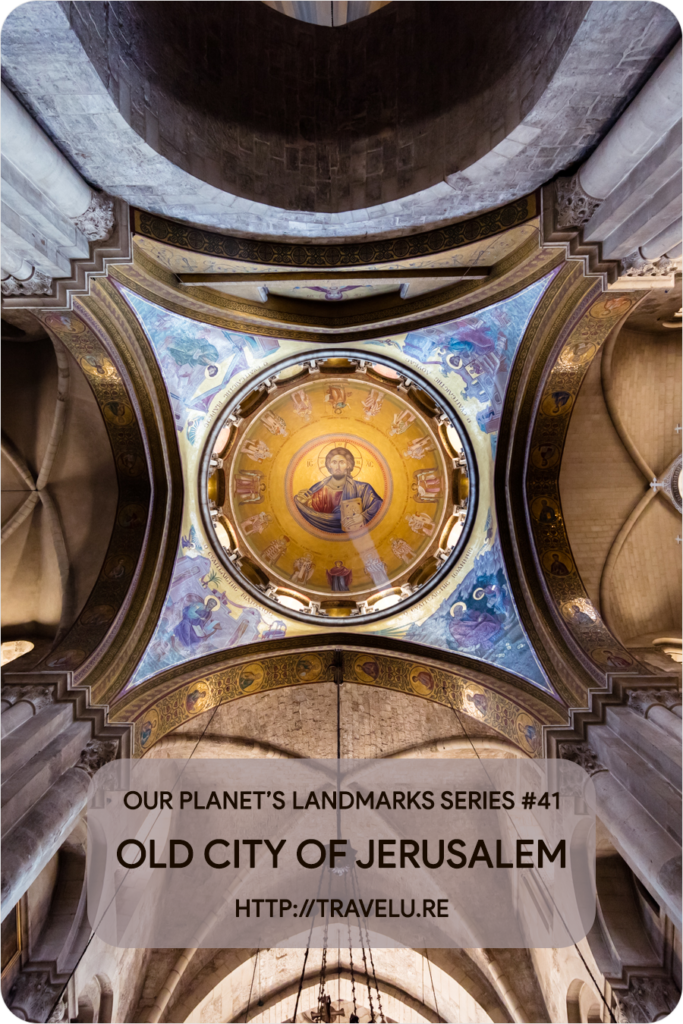
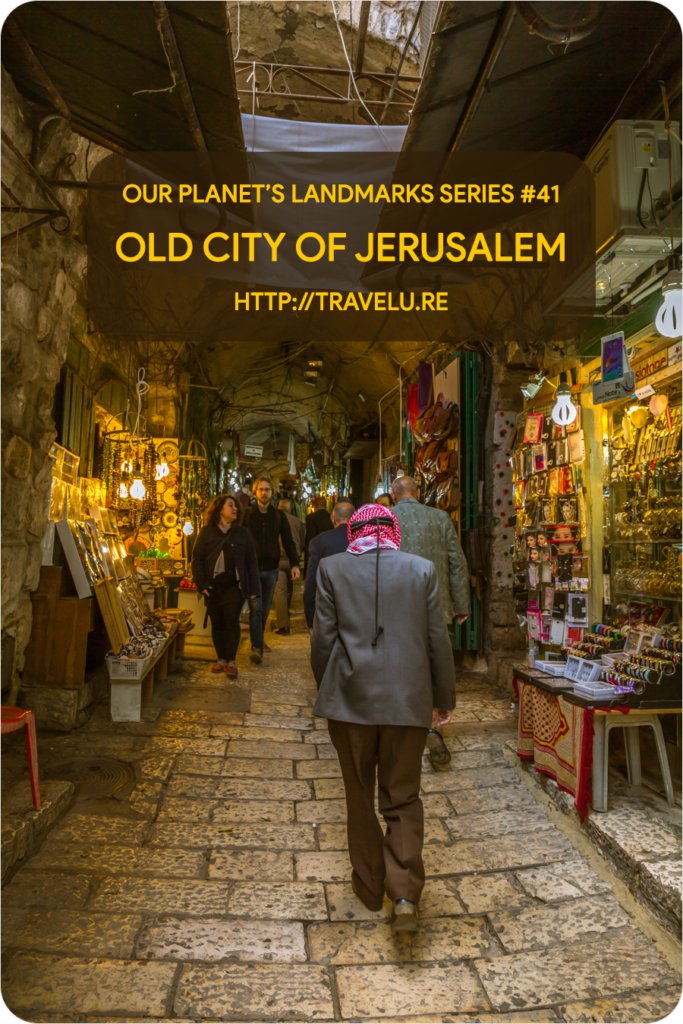
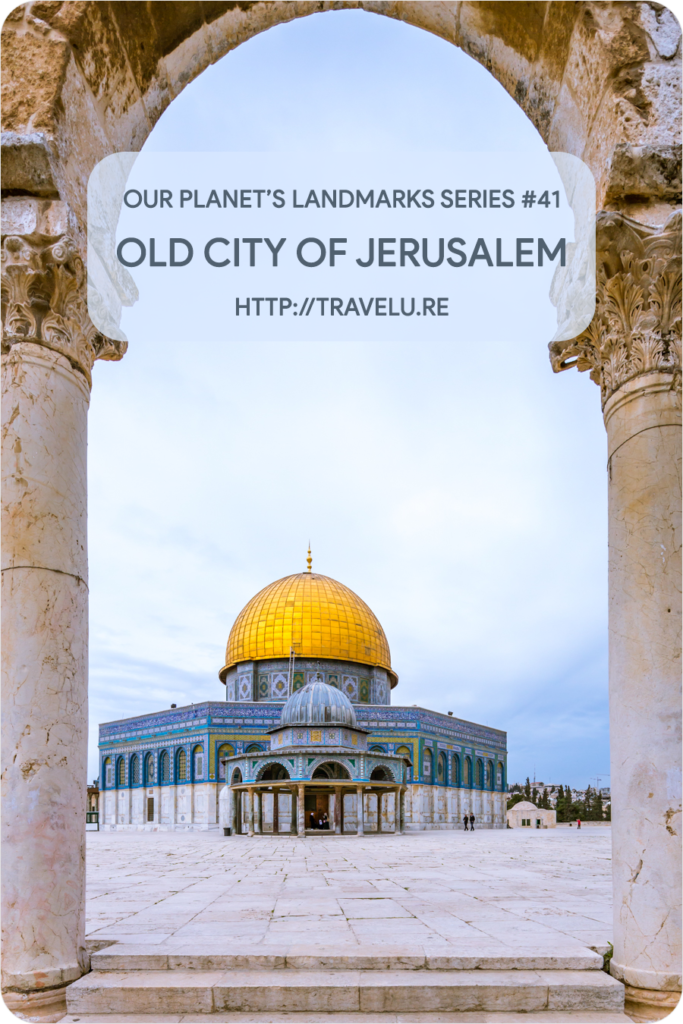
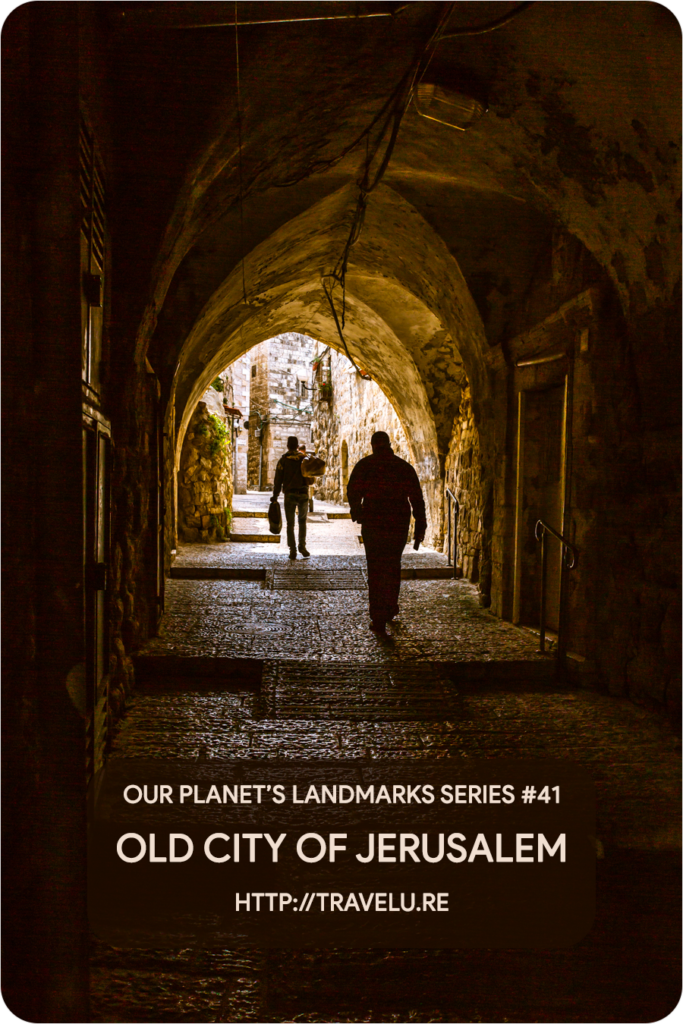


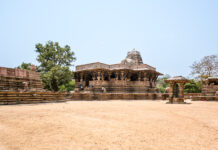











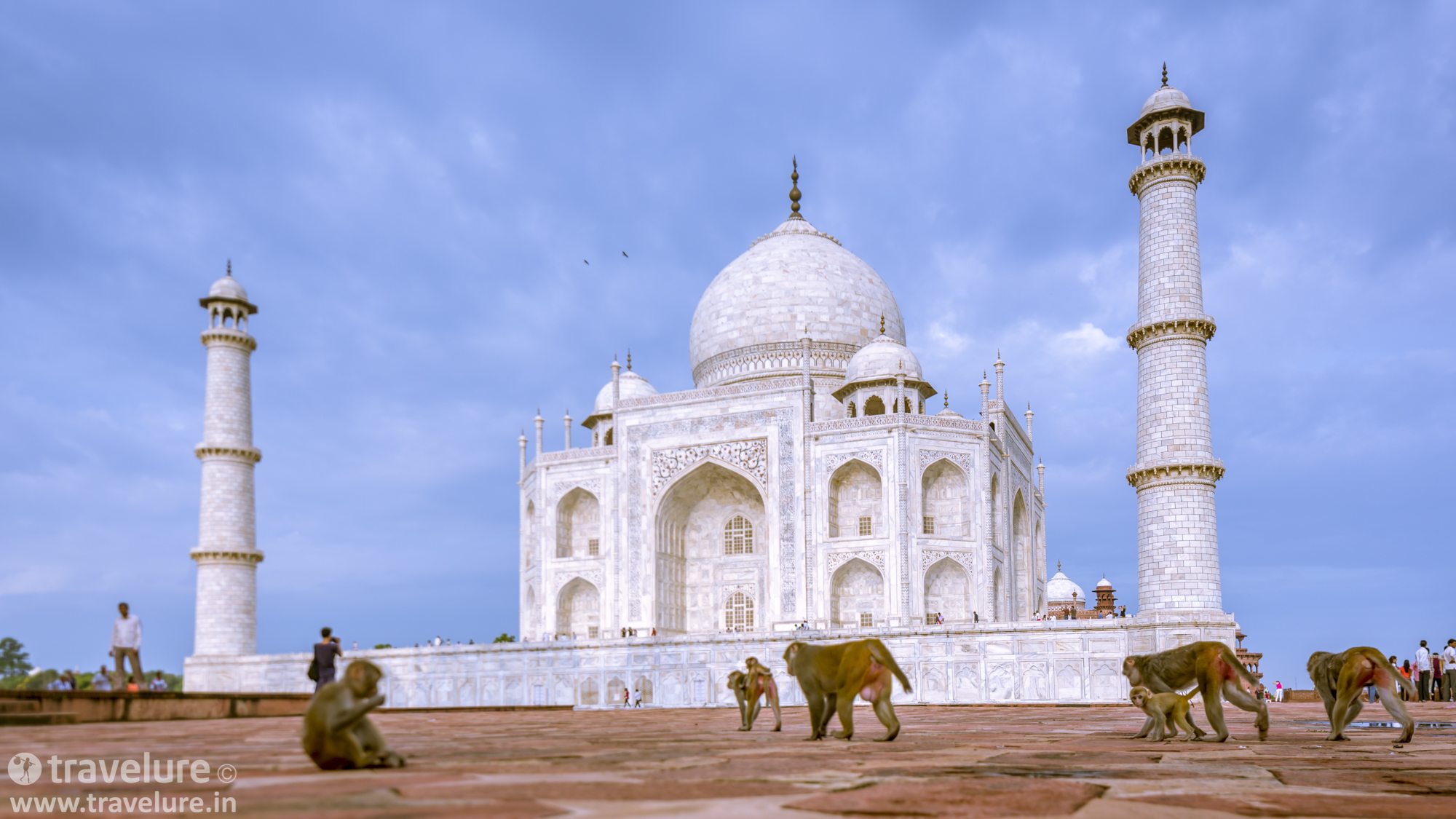

nice journey
Thanks!
beautiful place
I agree!
Great post. Very informative. Would love to go here someday
Well worth a visit, Shalini! In fact, check out my earlier post to know why – https://www.travelure.in/do-not-die-without-going-to-jerusalem/
good pics
Thanks! BTW, my hosting company rips off the links you leave.
lovely pics!
Thanks! My host rips off the link you left in the comment.
Good pics!!
Thanks! I guess you left a link with your comment. My host rips links from comments.
wow!! so many great things and amazing pictures.
Thanks for sharing this.
Thanks, Mahima… glad you liked the post!
Thank you so much for sharing the valuable post.
Glad you liked it, Roslia!
nic place to explore
Advertising Agency
I agree! 🙂